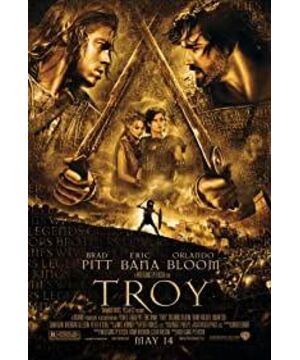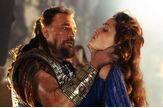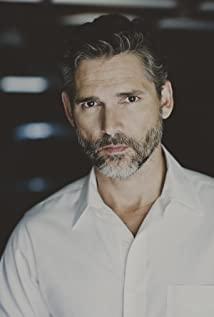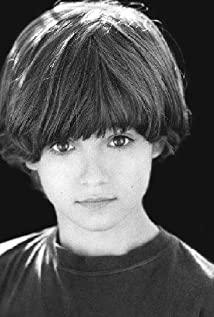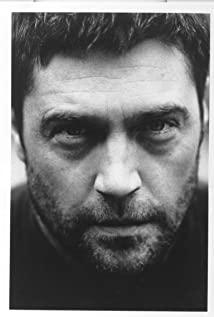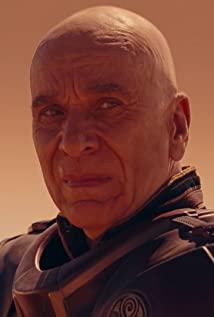Due to the length of the article below, one person seems to be unable to proofread it by one person. There are errors (including typos), please point out in the reply. The ending subtitles of the movie Troy-"inspired by Homer's' The Iliad" (adapted from Homer's "Iliad")-means: Although the movie Troy is closely related to the Iliad, it is after all There are many differences between the adaptations and Homer's original works. This article is not a criticism of the film, but it does make the audience misunderstand the movie Troy = Homer's epic to a certain extent. The task of this article is to clarify these misunderstandings. What needs to be explained is that what I'm talking about here is purely a fictional myth in Homer's epic, not historical truth. This article just shows that the movie Troy ≠ the epic "I" does not mean that Troy ≠ historical facts, the latter has yet to be discovered and studied by archaeologists and historians. Perhaps readers would think that this article is a bit too serious for such a commercial blockbuster, and it is unnecessary. In this regard, what I want to say is that this not only provides a reference for people watching this film and those who are interested in Homer’s Epic, but also a review of their own thinking in reading Homer’s Epic. Relevant materials and means to help deepen memory. In the following explanation: the film is conducted in accordance with the content and sequence of the 3 hours and 16 minutes director's editing version. "I" is based on the 2007 edition of "The Complete Works of Luo Niansheng Volume 5 Iliad" of Shanghai People's Publishing House of Century Publishing Group. The "Odyssey" is based on "Homer's Epic Odyssey" published by People's Literature Publishing House in 1997. Supplements: 1. The "!" symbol before the sentence means: the comparison between the movie and the historical facts; the "*" symbol before the sentence means: it belongs to the lengthened part of the director's cut version; 2. The English names and place names are all given according to the index of the proper names of "The Complete Works of Luo Niansheng Volume 5 Iliad", which is different from the English version of The Iliad. For example, Achilles is Achilleus in the former and Achilles in the latter; Austria Desseus uses Odysseus in the former and Ulysses in the latter; Aeas in the former is Aeas, and Ajax in the latter; the King of Troy is Priamus in the former and Priam in the latter... And, if Readers have read the English version of Homer's epic, and you will find that many Greek gods use the names of Roman gods derived from it. For example, Zeus uses Jove instead of Zeus; Athena uses Minerva, Rather than Athena, the reason is not clear to the author). 1. Achilles Achilleus and Boagrius duel to take down Thessaly (a region in eastern Greece, the same position as Tsalia in "I"): Differences: 1) "Yi" does not mention a word about this story. "I" begins with Agamemnon Agamemnon offending Apollo, the archer god Apollo, and a grudge with Achilles. Liamus Puriamus ransomed Hector Hector's body from Achilles and held a funeral for it to end. The story focuses on the 10th year and 50 days of the Troy War. The other stories of the war are supplementary narratives of memories. In fact, "The Iliad" means "the story that happened in Ilium (another name for Troy)", just as "Odyssey" is "the story about Odysseus". Therefore, it can be considered that all the Iliad's stories took place in Troy, and the stories in other places were not described directly. This is also an easy way to judge whether a certain story appears in the epic; 2) Agamemnon in the movie has a bloated figure and a face, and he is arrogant and greedy from the dialogue. In "I", Agamemnon is the mighty king of kings, leading "Achaei, the exquisite gaiters of Achaei" (the general term for the Greeks in "I") to rush to the front line, after being injured Just returned to the back. His spear throwing technique even defeated all other Greek fighters in the funeral competition of Patroclus, second only to Achilles who did not compete; 3) The eyes of Achilles in the movie tell us that this person Very arrogant and impulsive, even in front of the old man, he also showed disdain. In "I", although he is arrogant, he respects the elders and is very polite; the same: 1) Only the noble leader, the wise general and the bravest warrior will have a chariot, and each chariot is equipped with a driver.者; 2) Before the duel, the leaders of both sides approached and negotiated and set rules for the bravest fighters to fight each other. This was very common in ancient Greece;! 3) The helmet worn by Achilleus is almost the same as the helmet of ancient Greek soldiers excavated by archeology, which is in line with historical facts; 4) Achilles introduced himself to King Thessaly: "Achilleus, son of Peleus". This is a manifestation of the ancient Greeks' importance to the clan and respect for their ancestors, and it is also a characteristic of the ancient Greeks' self-introduction; 2. Hector Hector and Paris (the name "Alexander" is more commonly used in "I") took Helena from Sparta: Difference: 1) This paragraph does not appear in "I" story. If you want to understand the description of this matter in the myth, the following paragraph from the introduction of the original preface written by Wang Huansheng in the fifth volume of Luo Niansheng may be helpful: "Myths and legends attribute the cause of this war to the gods. The dispute involves mortals. It is said that the main god Zeus Zeus learned from Prometheus that if he marries the goddess Thetis, the child he will give birth will overthrow his rule. In order to keep his position, Zeus decided Remove Thetis from the mortal family. During the wedding of Thetis and Myrmidones leader Peleus Peleus, the quarreling goddess retaliated because she was not invited. She threw a message saying'For the most beautiful' to the feast. The golden apple of the goddess, leading to the quarrel between Hera, the goddess of wisdom, Athena, and Aphrodite, the goddess of love and beauty. Zeus asked the three goddesses to find the referee of Prince of Troia. Paris was born because of the birth of the goddess. Sometimes there was a strange sign, and he was abandoned by his father, Priamus, and in the Mount Ida. After he grew up, he grazing in the mountains. The three goddesses gave Paris power, martial arts, and beauty, respectively, and Paris sentenced the reputation to Afro. Dithe. Paris once went to Greece as a guest. With the help of Aphrodite, he abducted Helena, the wife of Menelaus, the king of Sparta, and the most beautiful woman in the world, Helena, back to Troia. The Greeks dealt with him. The Loyas failed to negotiate peacefully, so they took Menelaus’ brother and Mycenae king Agamemnon as the commander in command to form a coalition, including the famous Greeks such as Thetis and Peleus’ son Achilles Achilleus. Hero, marched into Troya, and started the Troya War.” 2) From the above story and Helena’s own words in "Odyssey", it can be learned that Helena in Homer’s works is not willing to follow Paris Who left Sparta, but were taken away; 3) Menelaus, Hector, Paris and Helen made their first appearances in the movie. In the movie, Menelaus loves peace and treats others with courtesy, but he is a vulgar and reckless man. In "I" he is as heroic as Hector; Hector is completely described as loving brothers and loving his wife. , Loves father, loves country, loves peace, and is a calm and handsome model. In "I", in addition to being a model, he is also arrogant because he is favored by the thunder god Zeus Zeus and the archer Apollo. With the help of God, he escaped the death of the Greek generals several times, but his force may not be as strong as in the movie. This point will be mentioned later. In short, Hector is not perfect in the movie in "I"; in the movie, according to Hector's words, Paris is a playboy, and "I" does not describe his "advantage"; In "I", Helen is the daughter of Zeus and Leda, that is, the daughter of the father of the gods and gods. The beauty of the city is naturally beyond the reach of the actors in the movie. But unfortunately, the actor Diane Kruger did not even reach one-tenth of Helen's temperament. It was a wooden vase. It’s hard to imagine how Paris was attracted to “her”... The same: * 1) In the middle of the night after the feast, Hector Hector ordered his subordinate Tecton (in “I” is the Trojan general Ferik Luos' father, but not sure if this is the same person as in the movie) Be prepared to sacrifice to Poseidaon, the sea god Poseidaon before setting off. This kind of sacrifice is inevitable before anyone does anything in Yi Give it as a gift, even as a bet; 3. Menelaus went to Mycenae and asked his brother Agamemnon to go to Troy together; Agamemnon discussed war with Nestor Nestor, King of Pylos: Difference: 1) This did not appear in "I", The director added this paragraph for the integrity of the film's story. Agamemnon’s greed and cunning in the movie are fully exposed. Every expression in his eyes, movements, and words in his mouth are full of conspiracy, which is obviously different from "I"; 2) In "I", Nestor Nestor He is the most respected old Pylos in the Greek Allied Forces, and even Agamemnon respects him three points and treats him respectfully; and Agamemnon in the movie does not respect Nestor and even yells at him; same: ! 1) When Menelaus just entered Agamemnon’s palace in Mycenae, you can see the two carved lions behind Agamemnon, the same as the tomb in front of the tomb of Agamemnon in Mycenae, Greece The doors are almost the same, I like it very much; 4. Agamemnon Agamemnon dispatched Ithaca (the hometown of Odysseus); Odysseus was ordered to persuade Achilles Achilleus to join the war; the silver-haired Thetis predicted the future of Achilles Achilleus: different: * 1) Agamemnon’s messenger in the movie is stupid. This is a “film feature”. The less important characters will be far from the protagonist, regardless of appearance or makeup; in "I", Homer treats the general’s attendant or Horse riders will use words such as "god-like", they are very temperamental, this needs to be noted; * 2) The messenger of Agamemnon in the movie is fooled by Odysseus, and "I" does not The sense of humor of the heroes has not been described. They never tease the king’s messenger, even the god-like Odysseus. However, in "I", there are occasional interesting words of heroes sarcasm and satirize their opponents-after Patroclus smashed Priamos' illegitimate son Cebriones from the chariot to the ground with a stone, Said the following paragraph: "My friends, look at how dexterous this man is, and he can jump over! If he has the opportunity to go to the sea where fish is rich, he will surely let many people eat enough and dive into the sea from the boat to get oysters. No matter how the sea roars, it is as dexterous as jumping from a chariot to the ground. There are such divers among the Trojans."-"Iliad, Volume 16, Lines 745-750 3) In "I", the relationship between Odysseus and Achilles is not as close as in the movie. Odysseus is not the only one who can persuade Achilles to join the war. Only the honor passed down is the only one who can persuade Ah. Of Chalius; 4) Patroclus is the cousin of Achilles in the movie, and according to the description in lines 85-90 of Volume 23 of "I", he is of Achilles Attendant-when he was young, he was forced to leave his hometown because he accidentally killed the son of Amphidamas while playing, was left in the palace by Achilles' father, Peleus, and grew up with Achilles. He was Achilles’ closest partner. This kind of love between men was very common in ancient Greece and was also respected; 5) In "I", the mother of Achilles Achilleus is called "Silver-haired Thetis" instead of the "Pinch of White-haired Thetis" in the movie; she made a prediction about the death of her love son in Troy , But to be more precise, she knew that her heroic son was destined to die in this war that has been passed down through the ages; the same:! *1) Ithaca, the hometown of Odysseus, is a small island in the west of Greece. It is reasonable to see the sea; it is also reasonable for Achilles and his companions to stand on the seaside building, because Achilles Phthia, under the rule of Siberia, is a seaside city; Hector Hector and Paris saw the endless sea when they returned to Troy by boat. They departed from Sparta in Peloponnese, Peloponnese, and returned to Asia Minor. The minor Troy Troy is bound to cross the Aegean; Menelaus Menelaus took a boat to Mycene Mycene to see Agamemnon, there is a river behind it, not the sea, because Mycenae and Sparta Da are an inland city, connected by a river; 5. Trojans cast fortifications; Myrmidones Myrmidones (lived in the Terthalia territory Phthia, Shuachaeus race, ruled by Achilles), the Black Sail Clippers landed on the beach, Aea Aeas (Ajax) led the fleet to follow: Differences: 1) "I" did not describe beach-grabbing, but only began to tell the story on a certain day in the tenth year after the war; *2) "I" only saw Greeks in Trenches were dug along the shore to build trenches, and sharp stakes were buried. No Trojans also buried stakes; 3) The Greek ships in "I" are all black, but in the movie they are all wood colors; the Mirmidon is ahead of other Greek ships to grab the beach Nor did it appear in "I"; moreover, Achilles led a fleet of 50 warships instead of a single ship; 4) In the movie, Nestor Nestor and Agamemnon are the same Take a boat; in "I", Nestor leads the fleet of Pylos from Pylos and Agamemnon leads the fleet of Argos from Argos. They are divided into two boats. 5) In "I", this It is not the first battle of Patroclus. Before that, he had participated in countless battles with Achilles. He was a heroic warrior with countless murders; 6) Aeas in the movie is tall and majestic but has no leader. His composure and wisdom, his stupid yelling at the beach is also laughable, Hollywood has always been good at shaping such a brainless hunk. The Aas in "Yi" is more loved than Hector. 7. The Myrmidones of Mirmidones captured and sacked the Temple of Apollo; Achilles Achilleus released Hector Hector and captured the priestess Briseis: Difference: 1) There is no looting of the Temple of Apollo in "I" Story, Hector will not come to rescue, and there will be no story of Priestess Briseis being captured. In the whole "I", Achilles did not show disrespect to Apollo, or even the opposite; as for how he offended Apollo in the later stories, I don’t know; 2) Apollo’s statue was a bow and arrow shooter. The shape shows his true identity in "Yi": the silver bow shoots the god, not the sun god. The ancient Greek god of the sun was Helios, the brother of the moon god Selene and the goddess Eos. In Homer's epic, he sees everything. In the heyday of Greece, he was regarded as the god of sunshine, the healer of blind people, and used blindness as a means of punishing people. It was mixed with Apollo in the fifth century BC. In other words, in the era when Homer was writing, Apollo was not yet the sun god; 3) In fact, Briseis in "I" was acquired by Achilles by killing his husband in other battles. Strictly speaking, she is not a slave girl, because before the Trojan War, Patroclus held a wedding for Achilles and Briseis, and she became Achilles’ wife; 8. The monarchs of Greece celebrated the success of the beach grab; Agamemnon Agamemnon captured Briseis and angered Achilles: Differences: 1) In "I", Agamemnon angered Achilles not after the successful beach grab. It was ten years after the war began. As stated in Article 7, Briseis is already Achilles’ wife, that is to say, Agamemnon robbed his wife, and many other trophies that Achilles deserved were also taken away. If he captures Achilles, of course Achilles will be irritated; in the movie it seems unreasonable; 2) After Achilles is irritated in "I", Pallas Athena advises him not to kill Agamemnon ; Briseis also did not appear in the tent. If Agamemnon really drags her into the tent to anger Achilles, then it is estimated that Agamemnon will not be able to save Agamemnon, and Agamemnon will be killed. The Hand of Luce; the same: 1) In the movie, Achilles put down the sword in his hand, and finally a smile appeared at the corner of his mouth. It may have a similar meaning to the following excerpt from lines 293-303 of the first volume of "Iraq" (An angry pleasure): "If no matter what you say, I will obey you in every action, I am a coward and a useless person. You send these orders to other people, don't give orders to me, I will not obey you. One more thing to tell you, you must keep in mind: I will not fight you or others for that woman, even though you take away what you gave me; the black clippers belong to me next to me You can’t snatch them away against my will. If you want to try, let everyone know: Your black blood will soon flow to the tip of my spear.” 9. The Trojans held a funeral for the dead soldiers; the king of Troy led the ministers to discuss: Differences: 1) There are often scenes of cremation of soldiers in "I", but it seems that there has not been a female singer singing for the dead; 2) There is no paragraph in "I" In the discussion of whether to participate in the war, what "I" describes is what happened in the war; 3) In "I", the decision of Paris and Menelaus to duel between Paris and Menelaus was not made before the war, but in Heck Inspired by Thor Hector, Paris's provisional decision; with:! 1) In the movie, the Troy ministers discussed that there was a birdman who did the language. Bird divination is extremely common in the life of ancient Greeks. Not only is it often described in "I", another ancient Greek poet Hesiod, who is as famous as Homer, wrote a poem called "The Bird "B"; 10. Priamus Priamus handed the sword of Troy to Paris; Andromacha dissuaded her husband Hector Hector from playing; Hector prevented Helena from fleeing: Difference: 1) "I" These scenes do not appear in the movie, the sword of Troy is of course a fabricated thing; 2) The scene in the movie where Andromek discourages her husband is similar to the scene in "I" where she bids farewell to her husband on the Troia Plain outside the gate of Skaye 3) As mentioned earlier, Helen in "I" came to Troy unwillingly. We don’t know whether she cares about the life and death of the people of Troy, but what is certain is that she actually wants to return to Troy. Menelaus, the king of Bada, next to Menelaus; the same: 1) Andromak discouraged Hector from going into battle and said that he had lost seven brothers, which is the same as in "I". Furthermore, her seven brothers were killed by Achilles, her father was also killed by Achilles, and her mother was captured by Achilles and later redeemed (according to "The Complete Works of Luo Niansheng" Volume V Iliad, Volume VI, Lines 414-428) 11. Achilles refused to fight, the Trojans prepared for battle and stood ready: Difference: 1) In "I", Achilles refused to fight It happened when the war lasted to the tenth year; then the preparations for the Trojans here will of course not be described in "I"; 12. The two armies negotiated and decided that Menelaus Menelaus would duel with Paris Paris. Hector Hector killed Menelaus to start the war: Difference: 1) As mentioned in point 3 of Article 9, in "I", Par In the tenth year of the war, Hector’s fierce general made a temporary decision to fight Menelaus. During the duel, Paris almost died. Fortunately, Aphrodite, the daughter of Zeus, used Paris to use the concentration. Covered by the fog, he rescued Paris’ bedroom (Lines 369-383 of the third volume of "I"); 2) In "I", Hector did not kill Menelaus, on the contrary, Menelaus Si is one of the few Greek generals who survived the Trojan War and successfully returned to his hometown; 3) In "I", Agamemnon's excuse for the beginning of the war was not Paris's breach of contract and escape in the duel; And there is no description of Paris’s escape in "I", except that he was rescued by the goddess in a state of almost unconsciousness; 4) The gold coins in his eyes when Menelaus Menelaus and Aeas were cremated were dead. After crossing the Styx, you need to give it to the boatman; 5) In "I", after Achilles was angered, he didn't pay attention to the war at all until Patroclus came to persuade him, and of course he would not go to watch the battle; 13. Hector Hector killed Aeas and the Greek Allied Forces failed and fled: Differences: 1) At this point in the story, it is necessary to talk about the combat effectiveness of the two military generals in "Iraq". A clear understanding: A. Achilleus is a well-deserved god of war without suspense, ranking first; B. Diomedes ranked second for stabbing Aphrodite and Ares the god of war; C. Tramon’s son, Aeas, had almost killed Hector with big rocks twice. The first time Hector offered to exchange gifts to end the duel, and the second time, the dark death had been overtaken by Hector. Apollo’s eyes, but he was rescued by Apollo alive. Therefore, Big Aas ranks third; D. Hector ranked fourth; therefore, the conclusion is: Unlike the plot of the movie, the big Aas in "I" did not, and cannot be killed by Hector; 2) "I" and the movie's biggest The difference is that in "I", God is in control of everything: the development of war, which wins and which loses, is determined by God's thinking and behavior; it is different in the movie; 3) The main battle in "I" is not It was carried out under the wall of Troy, but on the plain far away from the wall. Only when Patroclus came out of the station did Achilles lead the Greeks to attack the wall; 4) The battle in "I" was separated. Each area has at least two generals leading the battle, and each area has different battle conditions. It is worth noting that in "I", Troy is not alone. They also have an alliance with Asia Minor (such as Lycia, a Lycia led by Sarpedon, son of Zeus Zeus); 14. Odysseus Odysseus Stoll Nestor discussed the situation with Agamemnon, Achilles rescued Briseis and fell in love: 1) The Greek generals in "I", including Odysseus, all They will never retreat, nor will they say that without Achilles, they will lose. Even if they know that they will fail, they will continue to attack; 2) This is a plot that is not in "I", and Agamemnon does not. Brisyis was handed over to the soldiers, but directly returned to Achilles. Moreover, Achilles and Brisaiis were originally husband and wife, and the plot of falling in love and Brisaiis assassin "Agamemnon in "also knows that the overall situation is more important than a woman. What he wants is the victory of the war. Not only was he willing to return Achilles Briseis, but he also promised to give Achilles much more gifts than before-slave girls, gold, horses, and seven rich cities... The Complete Works of Luo Niansheng, Iliad, Volume 9, Lines 115-161); 15. Odysseus, Patroclus Patroclus persuaded Achilles to join the war, Achilles insisted on returning home: Differences: 1) In "I", Odysseus hardly had a separate conversation with Achilles At the time, it was only at the meeting of the kings of the Greek Union that the two had a dialogue; 2) In "I", although Achilles did not agree to participate in the war, he did not intend to return to his hometown. He didn't participate in the war because of his anger at Agamemnon, who took his honor. How could he be willing to return home without getting a little honor? He was just waiting for the opportunity, waiting for the defeat of the Greek coalition forces, in order to show his importance to this war. 3) Patroclus in the movie secretly played for his brother, and in "I", at the request of Patroclus, Achilles agreed to let Patroclus wear his armor to play for him ; Same as: 1) Same as in the movie, Patroclus also tried his best to persuade Achilles to rescue the Greek soldiers in "I", but despite this, Achilles still did not participate in the war; 16. Trojans attacked the Greek coalition camp at night, Patroclus' brother-in-law was killed by Hector Hector in the battle, and the two armies truce: 1) There are no Trojans attacking Greeks at night in "I", only Odysseus Odysseus and Diomedes visit the enemy camp at night (Volume 10 of The Complete Works of Luo Niansheng Iliad); the fireball attack also does not appear in "Yi"; 2) As mentioned above, in "Yi" It's a friend who is playing, not a brother. In addition, Patroclus played with Achilles’ knowledge; moreover, Patroclus in "I" played a very important role in this war. He took Troy who had crossed the trenches. The people hit back, rescued the Greeks from distress, beheaded many of the heroic generals of Troy, and repeatedly attacked the walls of Troy; later, he was killed by Hector, who was blessed by the gods, and was not as unclear as in the movie. Not white; 3) In "I", everyone including Hector knows that it was Patroclus who led the Myrmedones in Achilles armor to fight, and Hector killed him It is known from time to time; 4) During the war, the generals of the two armies will meet and fight each other from time to time, but the surrounding soldiers will not stop watching. This is one of the more funny scenes in the movie; and the war will not be due to The death of a person stopped, of course, except for the leader; 5) In the movie, Hector killed Patroclus and left the body back to the Greeks. His kindness is completely opposite to that in "I": In "Yi", killing enemy generals, depriving of armor, and grabbing and humiliating corpses is a common and brutal way to obtain great honor. It is also an important part of "Yi". It appears many times in "Yi". . For example, the seventeenth volume: "The two armies seized the remains of Patroclus in a fierce war" is the most prominent manifestation. The epic uses a whole volume of 761 lines to describe the process of fighting for the remains; and in the twenty-second volume, Akhal Luce Achilleus killed Hector, took away his armor, and used the method of dragging his body to insult Hector, and avenge Patroclus. He also won a great honor; another example is the twenty-fourth. Scroll Priam risked great danger to redeem Hector's body under the guidance of the gods... There are many other places that describe from the side the body of the enemy generals and insult them, and take me back. The importance of burning the remains of the killed generals; 17. Achilles, sad and angry, burned the body of Patroclus Patroclus, Hector explained to his wife the escape secret path: Difference: 1) As mentioned in the previous article, in "I", everyone knows it is Patroclus is leading the army, so Achilles did not blame his men; 2) There is no description of the secret passage of Troy in "I", which is fabricated by the film; 3) In "I", it is Patroclus The funeral was held after Achilles killed Hector, and this funeral is the epic description, not only the specific process of cremation, but also through competition to commemorate Patroclus; the same: 1) Achilles Luce's grief and sleepless night are consistent with "Yi", but the atmosphere of this grief is more intense in "Yi". The entire army, servants, and even livestock shed tears at the death of Patroclus; 18 . Hector Hector was killed and humiliated by Achilles Achilleus: Difference: 1) In "I", Achilles was deceived by Apollo and chased and killed the Trojan soldiers who retreated to the city. At that time Hector was indeed the last person to stay outside of the city. He was already frightened by Achilles' aura and turned and fled. How did you know that Athena was turned into her brother-Deiphobus deceived him? , Urged him to fight Achilles, and finally died in the city. Like in the movie, it is unrealistic for Hector to stop the archer who has aimed at Achilles. Every Trojan warrior in "I" wants to kill Achilles, whether it is with a spear or Bow and arrow, is it a face-to-face duel or a sneak attack; 2) As mentioned above, the difference from the movie is: in "I", Hector was killed by Achilles without a chance to meet his family for the last time; 3) " In "I", during the duel between the two, the Greek coalition soldiers behind them did not retreat, but after Hector was killed, they swarmed up and prodded Hector's body. Only then did Achilles drag the corpse to insult Hector. After this, Achilles held the funeral of Patroclus; 4) After Hector was killed in "I", the city of Troy fell into grief, and people burst into tears, only Hector His wife came to the city wall from the palace only after he was killed. She saw her husband being dragged and began to cry; 5) The role of Hector’s mother did not appear in the movie. 》Different places; the same as: Priamus went to Achilles’ tent to ask for the body of Hector Hector and took Briseis away. Achilles should have peace for 12 days: Difference: 1) "It's not a request for recovery, but a redemption." Moreover, Priam's ability to redeem the corpse also depends on the help of the gods: Apollo first proposed that Hector's corpse should be returned to Troy and received due respect, and then Zeus Zeus agreed and notified Achilles. Si’s mother, Thetis, asked her to persuade Achilles to accept the ransom to return the body. At the same time, Zeus sent the god Hermes Hermes to lead Priam to Achilles’ camp. 2) In the movie, Priam said that Achilles' father is dead. In fact, Peleus is still alive in the world although he is dying; 3) Achilles promised to return Heck After Thor’s body, Priam did not leave immediately. Instead, Achilles arranged to go to bed and planned to leave again the next day. It was only the envoy Hermes who woke Priam in the middle of the night. , Without being discovered by anyone, lead him back to Troy; Same as: 1) Like the movie, Achilles also promised Priam 12 days of peace in "I"; 20. The Trojans go to the funeral of Hector Hector, Odysseus has a Trojan horse, and the Greek army pretends to withdraw: 1) Unlike the movie, the Trojans in "I" are 12 days in Achilles' promise Hector’s cremation, which took place on the tenth day of peace, is much more careful than the description of Patroclus’ funeral; 2) After the description of Hector’s funeral, "I" ended. The story in the next movie only appeared intermittently and indirectly in The Odyssey. However, Odysseus's trojan horse trick did not appear in both "I" and "Ao"; 3) A scene where the Greek coalition's fleet pretended to retreat and hide in the bay was not seen in "I"; 21. The Greeks slaughtered the city, Priamus, Agamemnon, and Achilles died one after another: Difference: *1) In the extended movie, after sneaking into the city of Troy, the Greeks brutally slaughtered the people in "I" There is no description in "Ao", and of course there is no denial; 2) The successive deaths of Priam, Agamemnon, and Achilles are the most amazing story in this movie, and Agamemnon actually It was in the hands of Achilles' lover, and Achilles died because of his love. This story is not mentioned in "I", but it is certain that Agamemnon did not die in the hands of Briseis; the same: 1) The Trojan horse is basically the same as that in "Odyssey" The memories are the same. "Australia" is narrated by Helena (Volume IV, lines 244-258), Menelaus's Memories (Volume IV, lines 271-289), and the famous singer of Féix de Modo Coase Demodocus singing (Volume VIII, lines 500-520), etc., reproduced the Trojan horse trick: Odysseus pretended to be a beggar and sneaked into Troy. He received a lot of news. Later, he set fire to the original camp and the heroes ( Including Menelaus) hidden in the Trojan horse. The Trojan dragged the horse back to the Acropolis. Trojans arguing, sitting around the wooden horse, holding three opinions: 1. Use bronze to pierce the wooden horse; 2. Drag the wooden horse to the cliff high and push it down; 3. Keep the wooden horse to please the gods. Finally they adopted the last one, destined to be destroyed by the Greeks; 2) Like the movie, in other ancient Greek epics, Achilles was shot in the heel and died under Paris’ arrow, which is different from the folks. In the well-known story, the story that Achilles was cleansed in the Styghe with his mother's heels upside down, and became invulnerable except for the heels, did not appear in "Yi"; "Yi" "In "Achilles also did not play for a while because Hector took the armor from Patroclus. It can be seen in the case of Hephaestus, the god of fire, who recast the armor for him. Out; 22. Paris led the Trojan survivors to Mount Ida on Mount Ida. Odysseus burned the corpse of Achilles Achilleus: Differences: 1) There is no description of Achilles’ funeral in "I", but what can be known is that , Achilles’ funeral should be outside Troy, and it must be very grand; 2) At the end of the movie, Paris, Helena, Andromacha (Hector’s wife), Brisei Briseis and a part of the Trojans successfully escaped from the secret road to Mount Ida, but learned from the "Odyssey" that Helen followed Menelaus and returned to Greece, and Hector's son was thrown downstairs by the Greeks. After falling to death, Paris and Andromak should have died in Troy; Reference books: Luo Niansheng: "The Complete Works of Luo Niansheng Volume 5 Iliad", Century Publishing Group Shanghai People's Publishing House, 2007. Wang Huansheng: "Homer Epic Odyssey", People's Literature Publishing House, 1997. Chen Zhongmei: "Odyssey", Yilin Publishing House. Chen Zhongmei: "Sacred Homer Homer Epic Study", Peking University Press, 2008.
View more about Troy reviews


